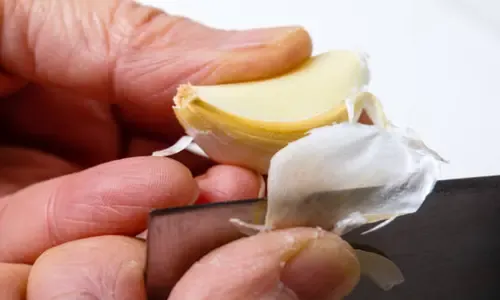The Science Behind Mosquito Attraction
Before we delve into the effectiveness of garlic as a mosquito repellent, it's important to understand why some people are more attractive to mosquitoes than others. According to studies, mosquitoes are attracted to certain chemicals and scents that are emitted by the human body. For example, human sweat contains compounds that are attractive to mosquitoes, which is why people who sweat a lot are more likely to be bitten. Pregnant women and people with certain blood types are also more attractive to mosquitoes.
The Role of Genetics
Studies have also shown that genetics can play a role in how attractive a person is to mosquitoes. Identical twins, who share 100% of their DNA, are more likely to have similar levels of attractiveness to mosquitoes compared to fraternal twins, who share only 50% of their DNA. This suggests that there may be a genetic component to mosquito attraction that can be detected by these insects.
The Creepy Side of Mosquitoes
Mosquitoes are not only annoying, but they can also transmit serious diseases such as malaria, dengue fever, and the Zika virus. In fact, malaria alone kills hundreds of thousands of people every year. Some parasites that cause these diseases can actually manipulate their hosts to make them more attractive to mosquitoes. For example, the parasites that cause malaria make infected individuals more attractive to mosquitoes that transmit the disease, which increases the likelihood of transmission.
Anecdotal Remedies
There are many anecdotal remedies for repelling mosquitoes, including taking vitamin B complex supplements, eating garlic, consuming Marmite or Vegemite, taking brewer's yeast tablets, and drinking alcohol. However, there is limited scientific evidence to support the effectiveness of these remedies.
The Garlic Myth
One of the most popular anecdotal remedies for repelling mosquitoes is eating garlic. Some people believe that eating garlic can make a person less attractive to mosquitoes. However, a study conducted in Connecticut found no evidence to support this claim. The study looked at the number of mosquitoes that did not feed on subjects, the number of mosquito bites, the weight of mosquitoes after feeding, and the amount of blood ingested by mosquitoes. The data did not provide any evidence of significant mosquito repellent effects from garlic.
The Tick Connection
While garlic may not be an effective mosquito repellent, some studies suggest that it may help repel ticks. The Swedish military conducted a randomized, controlled, double-blind trial of garlic to prevent tick bites among Marines. Participants consumed the equivalent of about one clove of garlic per day, and the results showed a significant reduction in tick bites compared to a placebo. While a 20% reduction may not be as effective as other tick-repellent methods, it could still be useful for those at high risk of tick bites.
Other Mosquito Repellents
While garlic may not be an effective mosquito repellent, there are many other options available. Some of the most effective mosquito repellents include DEET, picaridin, and permethrin. These repellents can be applied to the skin or clothing to repel mosquitoes. Natural remedies such as citronella, eucalyptus, and lemongrass oil may also help to some extent.
Conclusion
While garlic may have some benefits in repelling ticks, there is no scientific evidence to support its effectiveness in repelling mosquitoes. Other mosquito repellents, such as DEET, picaridin, and permethrin, have been shown to be much more effective. If you're looking for a natural remedy, citronella, eucalyptus, and lemongrass oil may be worth a try. However, it's important to remember that these remedies may not be as effective as synthetic repellents and may need to be reapplied more frequently. Ultimately, the best way to protect yourself from mosquito bites and the diseases they may carry is to use a combination of methods, including repellents, protective clothing, and mosquito nets.

